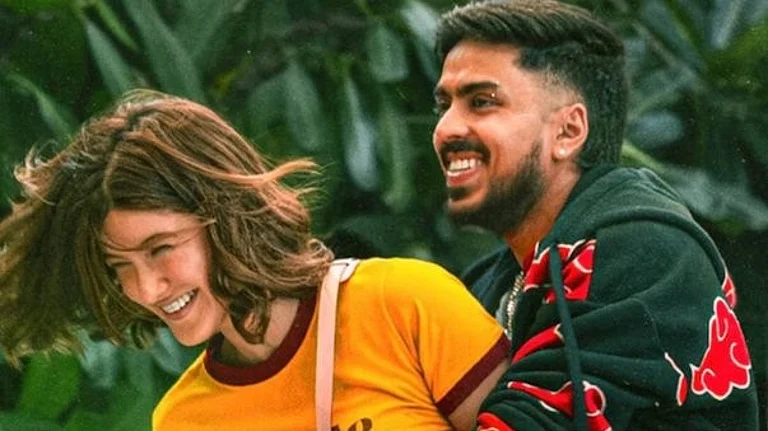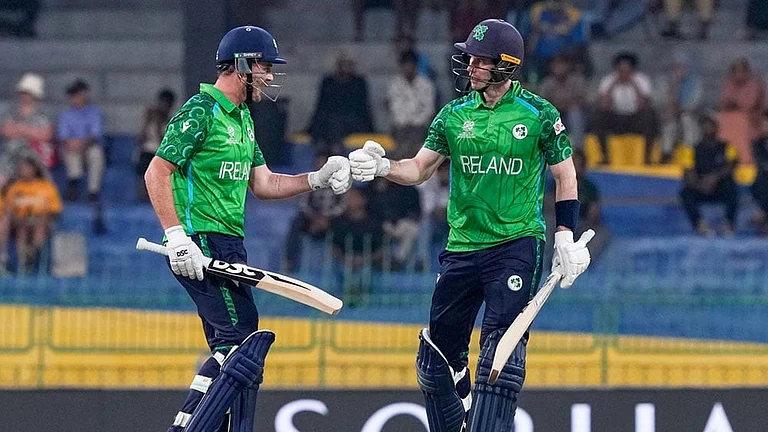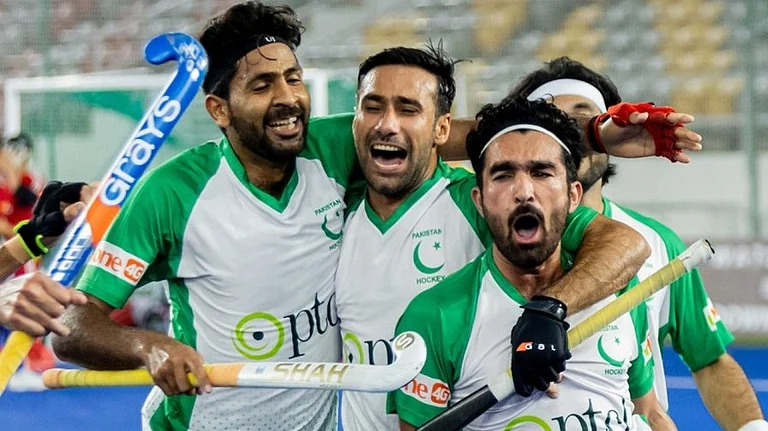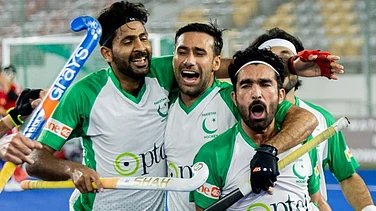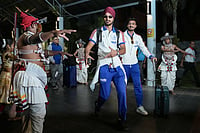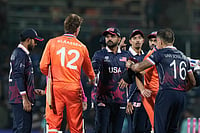Rajendra Mal Lodha, a former chief justice of India, headed a three-member committee that framed the new, historic constitution of the Board of Control for Cricket in India (BCCI). Here the 70-year-old from Jodhpur, Rajasthan, gives his views on the draft Sports Code for Governance in Sports that had drawn heavily from the same BCCI constitution but is yet to be implemented in the Indian Olympic Association (IOA) and the National Sports Federations (NSFs), thanks to politics. (More Sports News)
Excerpts from the interview:
You have been involved with the BCCI [as chairman of the Lodha Committee]. There’s a draft Sports Code for Governance in Sports of the Sports Ministry. On the one hand is the BCCI, which is in a world of its own. And there is this Sports Code, which encompasses all Olympic sports and non-Olympics sports. So, looking at the larger picture, where do you find the Indian sports administration at present?
Look, my observation would be as a lover of sports, not an expert on sports. But, yes, you are right, I think it is suffering from the same problems, same diseases, same ailments as the BCCI has been suffering from -- corruption, nepotism, non-accountability, non-transparency, huge and unlimited discretionary powers with administrators, and mismanagement of revenue and financial matters. They are the same problems that were happening with the BCCI. They all, obviously, need some good solutions.
Presently, two prominent cases are being fought in the courts – a BCCI reforms case in the Supreme Court, and there are a couple of cases going on in the Delhi High Court in which Rahul Mehra, a lawyer and activist, is seeking transparency and accountability in National Sports Federations (NSFs) and the Indian Olympic Association (IOA) through the Sports Code for Good Governance. How do look at this perpetual litigation in Indian sports?
The reason is very simple, actually. There are no strong sports law in the country. And whatever exists they are not being effectively implemented. So, obviously, that leads to the problems which I have highlighted. And, when these problems continue to remain over a period of time, obviously, people have nowhere else to go, but to the courts for redressal of grievances. So, this is why the courts are flooded with these types of litigation. The sports administration needs some kind of regulatory framework, some corrective measures, and to separate the wrong things which have been going on for a period of time. There should be an autonomous body, which has a complete view of the functioning of the sports federations. Even if there is no overarching sports body, there should be some law that governs each and every one of these associations -- how the administration would function, how the governance would function, how the financial manager’s powers would be exercised. It is also because we don't have strong laws in the country. Of course, the Olympic Charter governs the Olympic association [IOA], but still, there is absolutely no laws, no discipline, no control, financial mismanagement, and [rampant] nepotism -- all the things are happening. So, what else can the people do? They can’t take upon themselves to implement the law. They have to go to the court for the redressal. Sometimes the courts give solutions; sometimes they remain pending. And that's how things are going on. And, there is so much of discretion lying with sports administrators and that is wreaking havoc because they do whatever they like -- ‘You show me your face, and if I like I do [persist with you]; and if I don’t, I throw you out’. Therefore, some type of strong law is needed which governs sports bodies.
You mean some kind of Lokpal?
What I want is that the associations must have full autonomy. At the same time, there must be one overarching body, whatever name you give it, which looks after their affairs -- whether they are functioning well, whether they are managed properly, elections are held properly, and, whether there are there are no financial irregularities. There must be somebody. Of course, the sports ministry is there, the Sports Authority of India is there, but the framework, I don't know if it is there and if it is working or is not existent. So, some strong framework is needed.
A lot of commerce has come into sports activities now. Therefore, a lot of money coming, either from the corporate sector or from the government or sports itself is generating. Therefore, it needs some system, some check that the financial matters, the revenues that come are properly put into place.
Where is the infrastructure? India is such a vast country, and different areas have different sports activities, like Manipur has boxing, archery. Some places in north India have kabaddi; some places have football; and, some hockey. There should a demarcation…who will look after what. All these things can be done only if you have some institutional body that takes care of all these affairs and aspects.
I don't know if you have read the 29-page draft of the National Code for Good Governance in Sports, 2017. Before that, there was a 2013 Code. The 2017 draft has been rejected by IOA and all the NSFs, saying that ‘you're taking away our independence and that's why we reject them’, and also because there are age and tenure restrictions in the draft.
I haven’t studied deeply the Olympic Charter etc. But one thing is certain: you can always take care of the core things of the Olympic Charter. At the same time, it should not be difficult at all to implement your domestic laws, without any conflict. If there is any particular issue, or if there is some problem, it can always be solved because more than hundred countries participate in the Olympics and all these countries have their independent sports laws and the sports framework as well. In democratic countries, in most of the places, it is not the government that is controlling everything; it is the autonomous parties that are all independent. They take their own decisions. Even if the government provides funding, except the check that the government funds are not misused or mismanaged, there is absolutely no control at all by the government [on sports associations]. But neither do we have such strong willpower, nor do we desire to do all these things, nor are there not so many sports brains also in sports administration, meaning people who can provide ideas to the government. Without control and without disturbing their autonomy, things can improve and a framework can be made.
The sports ministry recently constituted a 13-member committee, headed by a retired Supreme Court judge, to review the draft Sports Code 2017. Then, Rahul Mehra went to the Delhi High Court with the prayer that five former international sportspersons of repute on the committee have conflict of interest. It is also being claimed that this committee has been formed to dilute the Code, which in itself is quite strong.
Right now, it is premature to attribute that the committee has been constituted to dilute the earlier provisions; it may not be a fair observation. One must wait and watch. Let the committee take a call. This is speculative and premature.
Rahul Mehra has also charged that some people on the committee have a conflict of interest.
That can be seen. Some people who have some conflict of interest or who are conflicted must recuse themselves -- I don't know this; is all a factual matter. Whether somebody is conflicted or not has to be seen.
A larger question, not restricted to the BCCI or any particular sport, on the overall conflict of interest in Indian sports: Do you feel that the conflict of interest issue is being taken too far?
I don’t know. So far our [Lodha Committee’s] recommendations are concerned, I'm sure they don't take things too far. And one should not feel that since we have a very small pool of talent, and because somebody because of the conflict is not able to participate, we won't have the right person. No. Otherwise, I don't know in what context you are talking. So far, our recommendations go, we have given illustrations, we have actually dealt with it quite elaborately. Some disclosure may be sufficient for some, for others a disclosure may not be sufficient, because the interest is so much conflicted that one has to be away from decision making. It all differs from scenario to scenario. Ultimately, the conflict of interest principle is now seen very seriously because it has been found that those who were conflicted were making decisions and, obviously, those decisions can’t be objective, can’t be fair, and would always be subjective. And since you know the bias, therefore a decision that is biased or subjective cannot be allowed to remain. So, the conflict of interest was given a very serious thought in the context of the BCCI. In other sports, I don't know if it can be so much. But, it can’t be said that the provisions which were made by us have been taken too far. No, no. I don't agree with that. I think the Supreme Court has also applied its mind. And I don't think they were interfered with or modified [by the SC].
In non-cricket sports, in almost all major disciplines like badminton, athletics etc., former India athletes of prominence open academies and then apply to the government for funds and several get the funds as well. Then, these athletes who are running academies are included in X, Y, Z committees. Do you think this falls under the conflict of interest?
Yes, yes, clearly conflicted, because obviously your interest is to give encouragement to your academy, the people who are learning there, in the selection process also you have some interference. So, this is a clear case of conflict of interest because you run an academy on the funds given by the government. Ultimately, an academy is not a small component. It has huge stakes in the working of sports. So, obviously, you're conflicted. I am not commenting on individual cases. But, in my view, prima facie, if a person has taken land on concession from the government, running an academy, and then that person is having a say selection of candidates, or [is involved in] the decision-making of the body, which has, or may have, some interest component for that academy then that is obviously a conflict. Like we say that justice should not only be done but it should be seen to have been done. If your decision-making gets affected by your interest then obviously that needs to be separated from decision-making. But I'm making it very clear that I'm not saying about anyone in particular; and I'm not going into the nitty-gritty of X, Y, or Z.
Recently, several former cricketers, like Sourav Ganguly, Mohammed Azharuddin, Anshuman Gaekwad, and Shanta Rangaswamy have come into BCCI administration in different capacities. On the other hand, there is Adille Sumriwala, a former international sprinter who heads the athletics federation. There are a couple of other persons who are into sports administration. So, sportspersons coming into sports administration…
That’s very good. That’s we wanted. That was the core thought in our report [on cricket reforms] because they are very important stakeholders. Their experience has a lot of value and that value should be added to the sports administration.
But my question is that when these people come into sports administration, they obviously don’t come entirely on their own vote bank. They align with people to get elected. I'm talking generally here, not about the BCCI. Usually, their hands are tied while taking independent decisions. Even if they are in a decision-making capacity, or have the power or the position, it is often seen that to get their work done they have to eventually go to politicians because many permissions [clearances of teams to travel abroad etc] have to come from the government.
You have to see in the context the nation works; the state of affairs. Obviously, pulls and pressures are there wherever these things happen. Either you are a man of a strong character and you have others bow down before you, or you bow down before others. So, it's all individual personalities. Pulls and pressures always come, whether you are a sportsperson or anyone else. Ultimately, if you are heading a body all these things would come into play. You have to show your mettle – that when you were on the court, you played efficiently, and now in administration, you are playing equally efficiently.
This one is about politicians in sports administration. What is so alluring in sports administration that politicians want to come into and when they come in they don't want to leave the chair.
It's very simple: because sports administration has power, influence, and has glamour. Now, obviously, it's a human weakness to have power, glamour, and influence. So, that’s why they stick to these posts once they happen to occupy.







